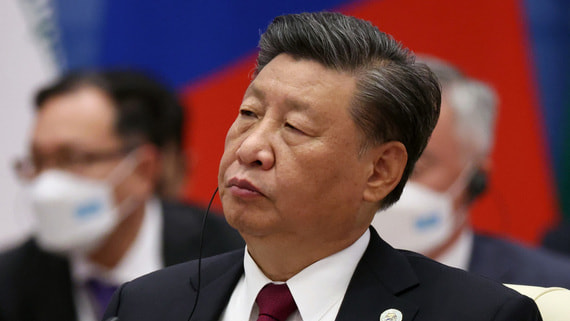Chinese leader Xi Jinping instructed to expand economic ties with Russia
[ad_1]

Chinese President Xi Jinping has instructed the government in recent weeks to forge stronger economic ties with Russia. This is reported by The Wall Street Journal (WSJ), citing anonymous political advisers in the leadership of China. According to the American edition, Beijing decided to develop trade relations with Moscow, which strengthened in 2022 and became its “lifeline” in the face of Western pressure. The Chinese plan announced by the WSJ includes an increase in Chinese imports of Russian oil, gas and agricultural goods, a strengthening of the energy partnership in the Arctic, and an increase in Chinese investment in Russian infrastructure (in particular, in railways and ports). In addition, Russia and China are increasingly making transactions in rubles and yuan to avoid sanctions.
Russian Ambassador to China Igor Morgulov on November 17 in an interview with RIA Novosti announced Xi Jinping’s possible arrival in Moscow in the spring of 2023 after the NPC session, which will distribute key government posts in China for the next five years. Vedomosti also previously wrote about the preparation of negotiations between Vladimir Putin and Xi Qinping via videoconferencing at the end of this year.
At the same time, the WSJ calls Xi’s words about the need to strengthen relations with Russia a “new turn” in relations between countries. Journalists emphasize that if before the start of the special military operation in Ukraine, the two leaders talked about “borderless partnership”, then China allegedly began to doubt the need for close cooperation with Russia.
During his last face-to-face meeting with Putin in Samarkand on the sidelines of the SCO summit in September 2022, Xi, on the one hand, promised to work with Russia to restore stability. At the same time, WSJ sources claim that the Chinese leader at the same time allegedly sought to demonstrate the discomfort that he experiences from the NWO.
Among the reasons for the PRC chairman’s focus on close cooperation with Russia, the WSJ also mentions “admiration for Soviet values, history and culture, deeply rooted in him from his youth,” which was not shaken by a long period of bad relations between the two countries in 1970-1980. It is alleged that after coming to power, Xi largely focused on the Russian system in politics, reducing the influence of the collegiate authority – the Standing Committee of the Politburo of the CPC Central Committee. The article also cites the story of how Xi’s alma mater, Tsinghua University, sent him a report that skeptically described the prospects for the Russian economy. The leader of China wrote the word “nonsense” in its margins.
As follows from the data of the China State Customs Service published on December 7, for the period from January to November 2022, the volume of Russian-Chinese trade amounted to $172 billion, which is 32% higher than the figures from January to November 2021.
It is very difficult to assess how true the WSJ message is, says Sergey Lukonin, head of the Chinese Economics and Politics Department at IMEMO RAS. At the same time, China really views relations with Russia as strategic and important and would like to expand and deepen economic cooperation with it. But there are certain obstacles on this path, the main of which can be considered sanctions. Despite all the talk about the decoupling (separation) of the United States and China, China and the European Union, their trade and economic relations are very large-scale and several times higher than the Chinese-Russian indicators, recalls Lukonin. Based on this, it is clear that cooperation with Russia carries a high risk of falling under secondary sanctions for companies working for export to the United States and Europe. The analyst calls the second problem the difference in the potentials of the economies of Russia and China, which makes it difficult to find areas of cooperation that are equal in rights and satisfy both sides.
There are also problems with Chinese investments in the Russian Federation – there are few of them, and at the same time, none of the parties can accurately estimate the total amount, the expert notes. In addition, Russia and China have very few joint value chains. Finally, a number of problems arise due to different approaches to the planning horizon. China is now targeting three dates: 2025 (the last year of the Made in China program), 2035 (the target date for achieving long-term strategic development goals), and 2049 (achieving the second century goal of making China a leading country) setting specific goals for each of them. Russia, on the other hand, does not have such a long-term planning horizon, which makes it difficult to understand exactly how the country will develop, Lukonin adds.
At the same time, the expert considers the WSJ’s story about Xi’s special personal attitude towards Russia to be fantasies, saying that China has a very pragmatic approach to cooperation. Lukonin recalls that China theoretically would like to develop cooperation with all countries of the world, since it has not abandoned globalization. In the context of relations with Russia, the development of the Polar Silk Road project in the Arctic, the supply of cheap gas and the creation of a fast transport artery to Europe are important for the PRC.
[ad_2]
Source link






